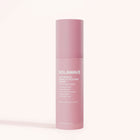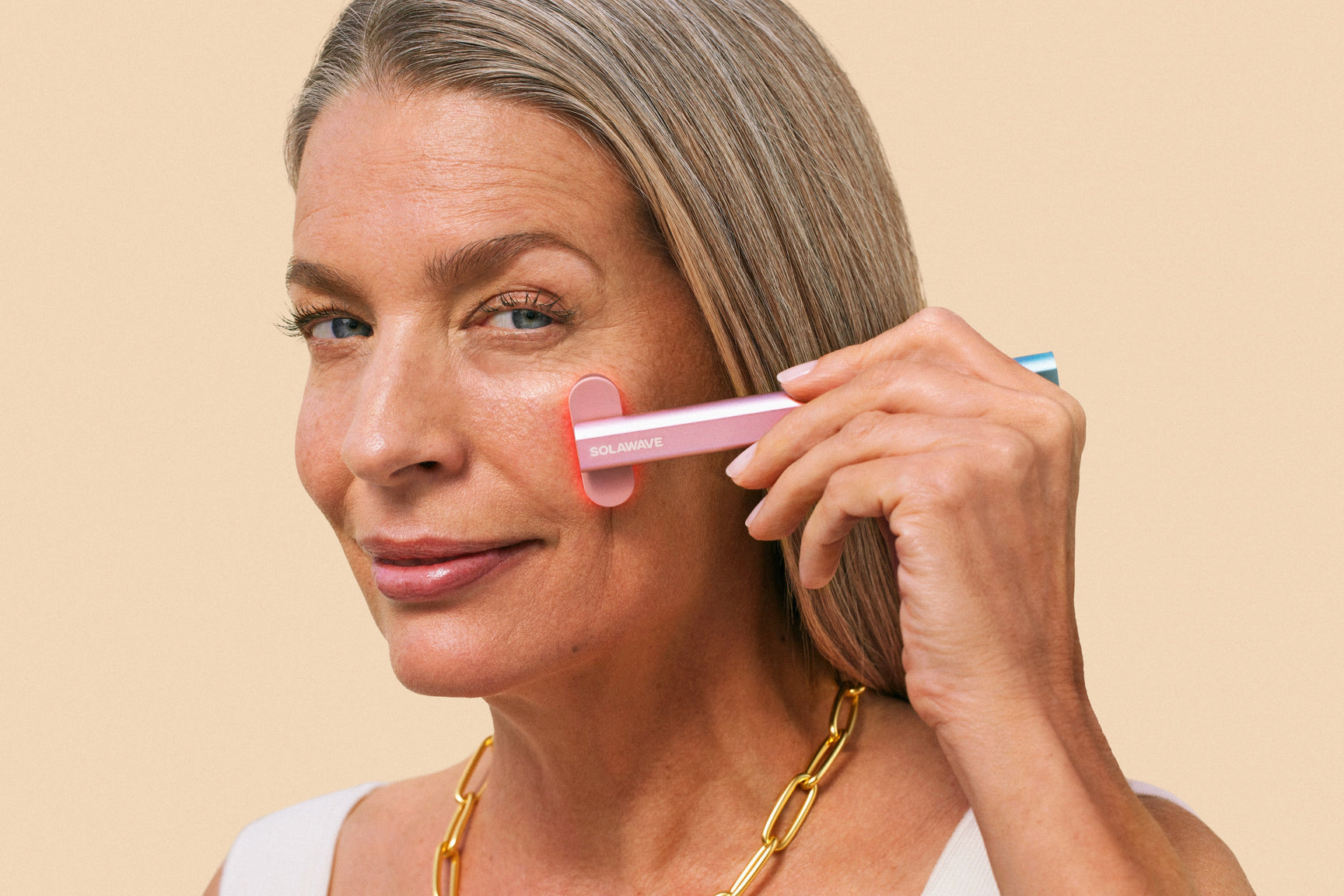

How To Depuff Face Quickly: 12 Ways To Reduce Face Swelling
What Is Facial Puffiness?
Facial puffiness, often referred to as a “puffy face,” occurs when fluid temporarily accumulates in the facial tissues, leading to a bloated or mildly swollen appearance. This type of puffiness can appear in various areas of the face, including the eyes, cheeks, and jawline. Unlike facial swelling, which can be caused by an underlying health or medical condition, facial puffiness is usually the result of lifestyle factors such as dietary choices, lack of sleep, stress, allergies, or hormonal changes. For facial swelling, which typically involves more inflammation, volume changes, and discoloration, it's recommended to seek medical attention.
How To Tell the Difference Between Face Puffiness and Face Swelling
Face puffiness is usually a temporary issue caused by lifestyle factors and is mainly an aesthetic concern. Common culprits for face puffiness include eating really salty foods or drinking alcohol, lack of sleep, high stress levels, hormonal changes, and mild allergic reactions. Face puffiness typically appears as a swollen or bloated look, especially around the eyes, cheeks, and jawline. The skin may look slightly stretched and less firm, giving an overall tired or worn-out appearance. Generally, face puffiness resolves on its own with some simple lifestyle tweaks, like eating better, getting enough sleep, and managing stress, paired with the right skincare routine and tools.
Face swelling is often a sign of an underlying medical condition and may need professional medical attention. Infections like sinusitis or cellulitis, severe allergic reactions, certain medications, facial trauma, and chronic medical conditions such as kidney or thyroid disorders can all cause significant facial swelling. Unlike temporary puffiness, face swelling is more pronounced and persistent, often accompanied by symptoms like pain, redness, or fever. Swelling typically makes the face look noticeably enlarged and may feel warm or tender to the touch. If you think your facial swelling is due to a medical condition, it's important to seek medical advice as soon as you can.
What Causes Puffiness in the Face?
There are several common causes of facial puffiness that are primarily aesthetic and can often be resolved at home.
Lack of Sleep
Not getting enough sleep can lead to fluid retention in the face, especially around the eyes, resulting in a puffy appearance. This happens because sleep deprivation can disrupt the body's natural fluid balance and increase cortisol levels, which can cause fluid to accumulate in the facial tissues.
High Sodium Diet
Consuming a lot of sodium can make the body hold onto extra fluid in an effort to dilute the extra salt present, which can extend to fluid retention and puffiness in the face.
Alcohol Consumption
Alcohol affects the balance of electrolytes and can increase inflammation, both of which contribute to puffiness.
Stress
Stress triggers the release of cortisol, which can disrupt fluid balance and lead to a puffy appearance in the facial tissues.
Hormonal Changes
Hormonal fluctuations, including those that occur during the menstrual cycle, can cause temporary fluid retention and facial bloating.
Allergies
Mild allergic reactions to environmental factors like pollen or dust can cause facial puffiness (different from the swelling that occurs from moderate to severe allergic reaction, which require medical attention). Allergens trigger an immune response that increases blood flow and immune fluid accumulation in the facial tissues.
Dehydration
Not drinking enough water can cause the body to retain fluid, leading to a puffy face; when dehydrated, the body holds onto water to prevent further fluid loss.
Sleeping Position
Sleeping on your stomach or side can cause fluid to accumulate in the “slept-on” parts of the face overnight. Gravity causes fluid to pool in these facial tissues, leading to morning puffiness.
Seasonal Changes
Fluctuations in temperature and air moisture can impact the skin's ability to maintain its natural fluid balance, resulting in puffiness.
Overuse Of Skincare Products
Using too many skincare products or products that are too harsh can irritate the skin and cause puffiness, usually accompanied by some redness and patchiness.
Red Light Therapy LightBoost Topicals
Why Is My Face Puffy in the Morning?
Waking up with a puffy face in the morning is something many of us experience, and it can happen for a variety of reasons, including sleeping position, the meal or drinks you had the night before, not getting enough sleep, allergies, congestion, and even hormonal changes:
- When you sleep, lying down can cause fluid to build up in your facial tissues, leading to temporary puffiness.
- Eating salty foods or drinking alcohol the night before can also make your face look puffier in the morning.
- Not getting enough sleep or having poor sleep quality can make it worse, as your body struggles to regulate fluid balance.
- Allergies, sinus congestion, and hormonal changes can add to the morning puffiness.
Why Is My Face Getting Puffy As I Get Older?
Facial puffiness can become more noticeable as we age, especially because skin aging as a whole tends to bring out visible changes in our complexion. Our skin's natural elasticity and collagen production decrease over time, leading to sagging and a less firm appearance. Additionally, the body's ability to regulate fluid balance diminishes, causing fluid retention in the facial tissues. Lifestyle factors such as diet, sleep patterns, and stress levels can also contribute to a puffy face as we get older. And finally, hormonal changes, especially during menopause, can affect fluid retention and circulation, making the face appear puffier.
The good news is that these causes can all be addressed within your regular skincare routine to help reduce the appearance of puffiness and bring out firmer-looking skin.
How To Depuff the Face Fast and Naturally At Home
Facial puffiness can be an unwelcome start to the day, but there are effective and natural methods to quickly reduce the puffing and restore a refreshed appearance.
Here are some practical tips to visibly depuff the face fast at home:
- Cold Compress: Apply a cold compress or ice pack wrapped in a cloth to the puffy areas for a few minutes. The cold temperature helps constrict blood vessels and reduce puffiness.
- Hydrate: While it might seem counterintuitive when you're trying to reduce fluid buildup, it's important to drink plenty of water to help flush out excess sodium and toxins that may be the cause of fluid retention. Plus, staying hydrated also supports overall skin health!
- Facial Massage: Gently massage the face using upward and outward strokes to stimulate lymphatic drainage and promote blood circulation, reducing fluid buildup. Using a facial massage wand, jade roller, or gua sha tool can enhance the effects.
- Elevate Your Head: When sleeping, use an extra pillow to keep your head elevated. This can help prevent fluid from accumulating in the face overnight.
- Reduce Salt Intake: Minimize consumption of salty foods, as excess sodium can lead to water retention and facial puffing.
- Use Cucumber Slices: Place chilled cucumber slices over the eyes and other puffy areas. Cucumbers have anti-inflammatory properties and their cool temperature can help reduce puffiness (similar to the effects of a cold compress!).
- Apply Tea Bags: Soak tea bags in cold water and place them on the eyes. The caffeine and antioxidants in tea can help constrict blood vessels and reduce puffiness. (Use simple, neutral teas like plain black or plain green; avoid eye-irritating ingredients like mint or lemongrass!).
- Exercise: Engage in light physical activity to increase blood circulation and promote the removal of excess fluids from the face.
- Get Adequate Sleep: Ensure you get enough restful sleep, as poor sleep can contribute to facial puffing. Aim for 7-9 hours of quality sleep each night.
- Avoid Alcohol: Limit alcohol consumption, as it can dehydrate the body and lead to fluid retention, resulting in a puffy face.
- Use Aloe Vera Gel: Apply aloe vera gel to the face for its soothing and anti-inflammatory properties, which can help reduce puffiness.
- Eat Anti-Inflammatory Foods: Incorporate foods rich in antioxidants and anti-inflammatory properties, such as berries, leafy greens, and turmeric, to help reduce overall inflammation in the body.
Solawave's 4-in-1 Skincare Wand for Face Puffiness
Our 4-in-1 Skincare Wand is a powerful tool designed to not only address the look of facial puffiness, but also visibly smooth fine lines, fade the look of blemishes, visually lift and firm skin, and promote a healthy-looking glow! The wand utilizes Red Light Therapy, Facial Massage, Therapeutic Warmth, and Galvanic Current to deliver these superior skincare results.
Incorporating the Solawave Skincare Wand into your daily routine can also brighten the appearance of dark circles and rejuvenate tired-looking skin. The combination of Red Light Therapy and gentle Facial Massage helps to create a more even skin tone and a healthier-looking complexion.
With regular use, the Solawave Skincare Wand can transform your skincare regimen, offering both immediate and long-term, lasting results with professional-grade treatment in the comfort of your home.
How To Depuff Face Overnight
To depuff the face overnight, start by ensuring proper hydration throughout the day or as soon as you can; drinking plenty of water can help flush out excess sodium on top of hydrating skin so it looks supple instead of bloated. Avoid consuming salty foods and alcohol in the evening, as they can contribute to puffiness in the morning.
At the very beginning of your nighttime skin routine, apply a cold compress to the face to reduce swelling. After cleansing and before applying products, utilize Red Light Therapy and Facial Massage to help promote circulation in the skin and help rejuvenate the complexion. Consider using a depuffing eye cream and other overnight products that use soothing and calming ingredients for the skin, such as aloe vera and caffeine. When you go to bed, elevate your head with an extra pillow to prevent fluid accumulation while sleeping.
Long-Term Strategies To Reduce Facial Swelling and Depuff the Face
Adopting long-term strategies to reduce facial swelling and depuff the face involves a combination of healthy lifestyle choices and consistent skincare practices.
- Maintain a balanced diet low in sodium and rich in anti-inflammatory foods, such as fruits, vegetables, and omega-3 fatty acids, to minimize fluid retention.
- Engage in regular exercise to promote circulation and lymphatic drainage, reducing the likelihood of puffiness.
- Stay well-hydrated by drinking plenty of water to support overall skin health, flush out toxins, and aid in detox.
- Use gentle facial massages and tools like skincare wands, jade rollers, and gua sha to support your body's natural circulation and lymphatic drainage.
- Prioritize adequate sleep and manage stress levels to prevent facial swelling caused by poor sleep and high stress.
- Incorporate skincare products with ingredients like caffeine, green tea extract, and hyaluronic acid to nourish skin. (Our Glowing Skin Starter Set includes a gentle cleanser, hydrating toner, nourishing moisturizer, and plumping serum that all work to give your skin exactly what it needs to achieve a healthy-looking glow!)

Conclusion
In summary, facial puffiness can stem from a variety of factors, including diet, sleep, stress, and hormonal changes. By making small but impactful changes like eating a balanced diet, staying hydrated, getting enough sleep, and incorporating tools like the Solawave Skincare Wand, you can significantly reduce puffiness and enhance your overall complexion. With these tips and tricks, you'll be well on your way to enjoying a more radiant and refreshed look every day!
Sources:
- Facial Swelling - Mount Sinai Hospital
- How Sleep Works - How Much Sleep Is Enough? | NHLBI, NIH
- Foods that fight inflammation - Harvard Health














